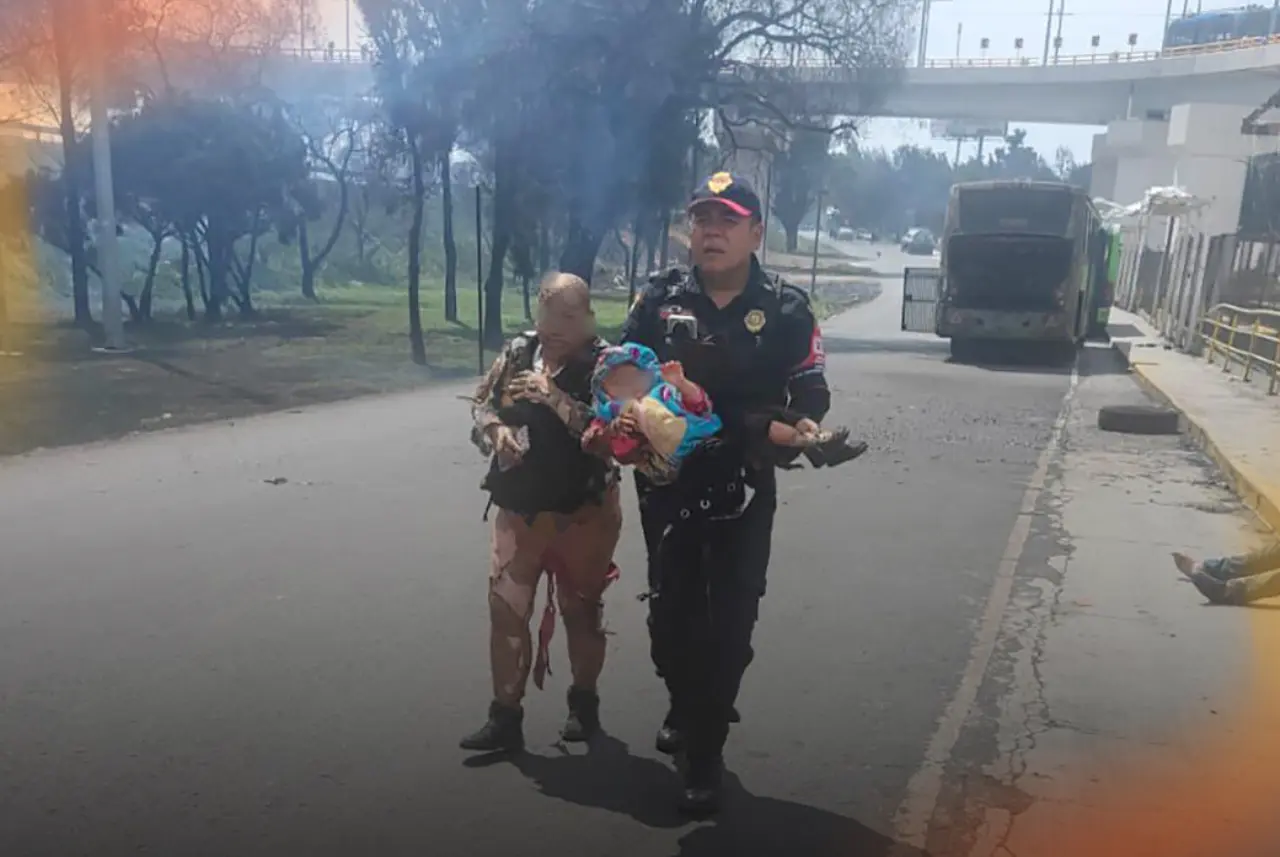
It was barely 2:20 p.m. on September 10 when an explosion abruptly changed the lives of 94 people. But the shockwave reached far beyond the families and friends of those directly affected — it struck deep into the heart of Mexico City society, which, whenever tragedy strikes, proves once again that being chingón is Mexican: the kind of people who, in the midst of pain, become one body, one entity moving in unison, full of love, aid, and resilience.
Iztapalapa, an eastern borough of Mexico City, is a place marked by marginalization, poverty, and lack of opportunity. Its residents know firsthand what it means to travel two or three hours just to get to work, school, or simply pursue a better quality of life. Yet this reality has never been an impediment to showing one of the most profound human qualities: the Mexican way of being chingón. When catastrophe, uncertainty, and fear strike, people help each other without hesitation. Whether it means hauling buckets of water to fight the blaze from a gas tanker despite the suffocating heat, offering coffee outside hospitals, distributing supplies to those in need, or giving strangers rides from one hospital to another to find their loved ones — solidarity emerges naturally.
Grains of Sand in an Ocean of Pain
Edson Martínez, a young delivery worker, did not think twice about setting aside his livelihood — which barely covers his daily needs — to help his neighbors.
“Looking for a family member? I’ll take you from hospital to hospital for free.” That was the message he scribbled on a piece of paper and held up outside a hospital. Within minutes, it went viral on social media. Edson became a hero, using his motorcycle to transport, free of charge, the relatives of victims of the explosion of a tanker carrying 49,500 liters of LP gas under the Puente de la Concordia bridge.
In an interview with journalist Israel Lorenzana, Edson explained that just before the accident, he had picked up his daughter from school. After ensuring she was safe at home, he rushed out to help. His wife, grandmother, and aunt joined him, becoming part of the wave of volunteers who contributed their grain of sand.
“I usually work nights, but when I saw the chaos, I thought, no — I have to help. Families were being sent from one hospital to another, going in circles, desperate,” he recalled.
It was like watching an army of worker ants, perfectly coordinated in their mission to bring food to their colony. Dozens of Mexicans — neighbors, friends, strangers — acted as one living organism, a giant with a single purpose: to save lives.
Television images showed them passing buckets and containers of dirt or water hand-to-hand to extinguish burning cars. Shouts rang out — “faster,” “pass more” — but there were no leaders, no divisions, only the instinct to help.
Without tools, many dug into gardens with their bare hands, filling shirts, jackets, and sweaters with earth to smother the flames. Who thinks of anything else in such a moment?
Meanwhile, improvised lists of names of the affected spread rapidly across social media. Students from the National Polytechnic Institute’s CECyT 7, known as “Voca 7” on Ermita Iztapalapa Avenue, quickly organized to collect and deliver supplies — water, food, clothing, medicine, hygiene products, even medical instruments. Two of their classmates had been injured; hours later, one died from severe burns covering most of his body. The other remains in critical condition, still fighting for his life.
Public Servants Are Human Too
This is the part that breaks you. Alicia Matías Teodoro is a heroine — there is no other word. She is 49 years old, and worked as a bus inspector just meters from where the tanker exploded. When the fireball erupted, she shielded her one-and-a-half-year-old granddaughter with her own body.
The image is terrifying, heartbreaking, and yet filled with love and courage. Out of the smoke and flames, Alicia emerged into the street, barely able to stand, her body unrecognizable, her skin torn apart — but carrying her granddaughter alive in her arms. That was all that mattered.
Sergio Soriano, an officer with the Industrial Bank Police (PBI), noticed her from a distance. At first, he thought she carried a bundle. Then he saw the child.
“She shouted, ‘It’s my baby, my little girl!’ And I said, ‘Give her to me, hand her over!’” Soriano recounted. He gave the baby first aid — at first unresponsive — then rushed her to the nearest hospital on a motorcycle borrowed from his sister and brother-in-law. The moment was recorded on his body camera.
Alicia has burns over 98% of her body and remains in critical condition. The little girl, with burns covering 70% of her body, has a chance of survival.
Firefighters, police officers, doctors, nurses, paramedics, ambulance drivers — all of them showed that being public servants means more than serving a borough or an institution. It means serving people, who could just as well be their brothers, friends, or loved ones. They deserve our deepest respect, support, and applause.
Being Chingón Means Never Giving Up
The stories of love, resilience, solidarity, and compassion are too many to capture in a single column. But all of them explain why Mexicans are chingones. Because when faced with tragedy, we have no other choice but to be.
Related: September 11: The Memory of Unity Amid the Shadow of Polarization